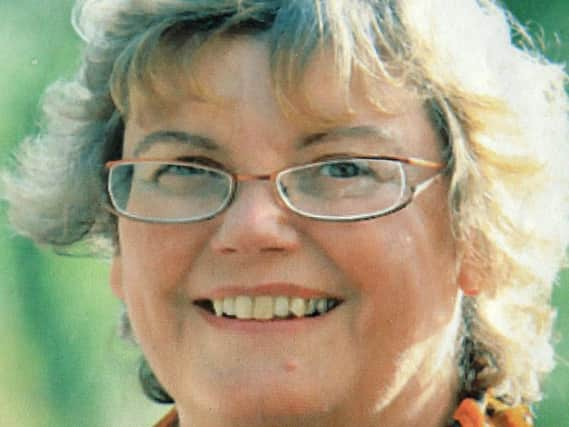Rosemary in print with 19th-century family saga


It is set against the backdrop of Grimsby, a small coastal town trying to reinvent itself in the era of the Napoleonic Wars, religious renewal and the increasing demand for voting reform.
“This is my third book,” says Rosemary. “The first two (Search for the Light and The Digger’s Daughter) were in a series, and I may write another in the series. But the first two were set in Australia about my husband’s side of the family. My side of the family were saying that it was time I set one in my side.
Advertisement
Hide AdAdvertisement
Hide Ad“The book is set in the first half of the 19th century. Grimsby had been a major town since the Middle Ages. It had two MPs, but by this time, there were fewer than a thousand people there. The port had silted up completely, and it became a little village in the middle of nowhere. The railways then revived it. The railways built the new dock, and then suddenly it began to take off again, and by the end of the century, it went up to 80,000 people living there – from less than a thousand to 80,000 in the space of a hundred years.
“My book is very much set in the slump time. I am taking on the wider social history in terms of the Napoleonic Wars and the rise of the dissenting religions. It is very much based in Methodism and Primitive Methodism, and there were arguments for voting reform, and I am dealing with family history over three generations.
“William Holtby is the middle generation. It starts off with his aunt rescuing him from a life of poverty and bringing him up to be a gentleman, and then he meets this travelling minister who becomes a big influence on his life. It is all about love and loss and betrayal which are the recurring themes in the book.
“This particular book is based on my three-times great grandfather who was converted to Primitive Methodism. After John Wesley and Charles Wesley went around drumming up this new religion, Methodism went inside and within 60 years became accepted, but then they sat in the chapels and didn’t go out as John and Charles Wesley did. So you then had Primitive Methodism which went back to the roots to get people out again, visiting the workers and getting them to change their ways in order to get out of the poverty they were in.
Advertisement
Hide AdAdvertisement
Hide Ad“This has been the most difficult book to write because the sources were not as easy to find as they were for the books set in Australia. For those books, I was dealing with convicts, and all the convict records are extant and online. I followed it through which was fascinating and also used the newspapers which were online and free of charge. I could follow my husband’s family right through from the moment they arrived, any trouble they got into, right into the 20th century. But it wasn’t so easy for this latest book.”
Rosemary was born in Lincolnshire and educated there and in Singapore. She attended university in Birmingham and Sussex and worked all her life in education as a librarian.
Along with three fellow writers, she will be launching the new book on Sunday, April 30 from 10am-1pm in the Jubilee Gallery at the Arundel Museum, Mill Road, Arundel.
All four are members of the Rustington-based creative writing group Arun Scribes.
Advertisement
Hide AdAdvertisement
Hide AdDon't miss out on all the latest breaking news where you live.
Here are four ways you can be sure you'll be amongst the first to know what's going on.
1) Make our website your homepage
2) Like our Facebook page
3) Follow us on Twitter
4) Register with us by clicking on 'sign in' (top right corner). You can then receive our daily newsletter AND add your point of view to stories that you read here.
And do share with your family and friends - so they don't miss out!
Always the first with your local news.
Be part of it.